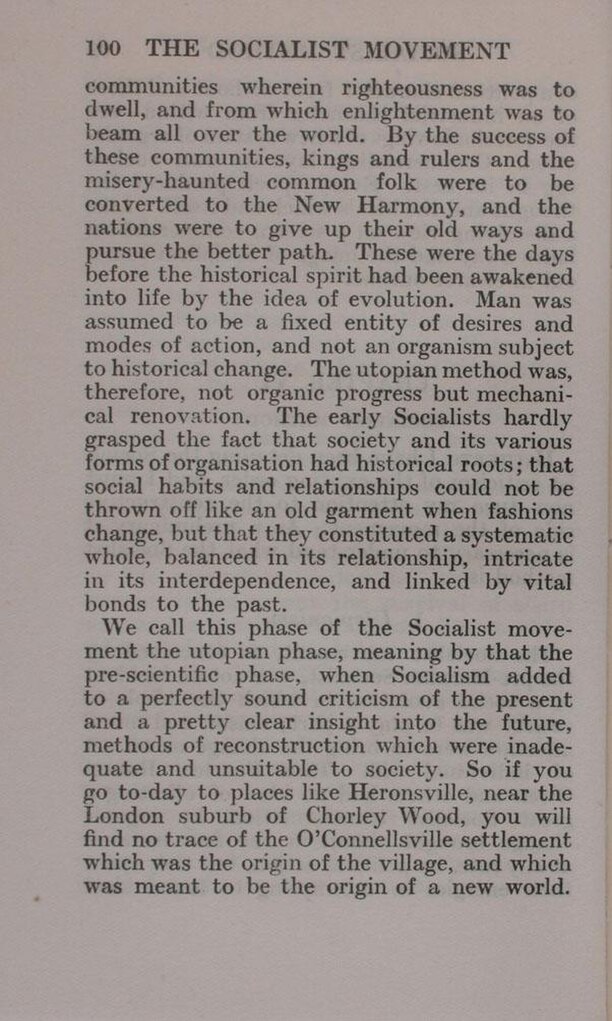communities wherein righteousness was to dwell, and from which enlightenment was to beam all over the world. By the success of these communities, kings and rulers and the misery-haunted common folk were to be converted to the New Harmony, and the nations were to give up their old ways and pursue the better path. These were the days before the historical spirit had been awakened into life by the idea of evolution. Man was assumed to be a fixed entity of desires and modes of action, and not an organism subject to historical change. The utopian method was, therefore, not organic progress but mechanical renovation. The early Socialists hardly grasped the fact that society and its various forms of organisation had historical roots; that social habits and relationships could not be thrown off like an old garment when fashions change, but that they constituted a systematic whole, balanced in its relationship, intricate in its interdependence, and linked by vital bonds to the past.
We call this phase of the Socialist movement the utopian phase, meaning by that the pre-scientific phase, when Socialism added to a perfectly sound criticism of the present and a pretty clear insight into the future, methods of reconstruction which were inadequate and unsuitable to society. So if you go to-day to places like Heronsville, near the London suburb of Chorley Wood, you will find no trace of the O'Connellsville settlement which was the origin of the village, and which was meant to be the origin of a new world.
